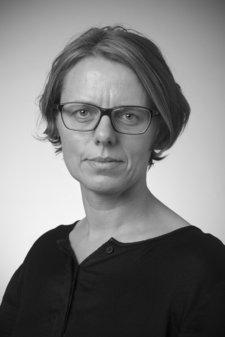Network for Gender Research Further Strengthened
Until now, GIR (Gendering in Research Network) has been connected with and financed by the Interacting Minds Centre, but for the next two years, it is further strengthened to the benefit of everyone with an interest in gender research at Aarhus University.
The network, Gendering in Research Network (GIR), was founded by PhD Lea Skewes a year and a half ago, and it is connected with the Interacting Minds Centre for the purpose of uniting and attracting both researchers and students with an interest in gender research and gender issues.
“We have steadily built up our network in the elapsed time, and we have held a large number of interesting seminars with very different presentations on gender research,” says PhD Lea Skewes, who, in collaboration with PhD student Theresa Amman, has spearheaded the seminars which have been held each month.
A Hundred People Associated with the Network
Today, more than a hundred people, counting both students and researchers, are connected with the network, and with the recent refinancing from the senior management team at Aarhus University, a platform for meeting through gender research and discussing gender issues has been secured for the next two years.
“We want to make sure that the network can qualify our discussions on gender in research in the future,for example by arranging several good seminars that can attract international capacities from the academic area,” Rector Brian Bech Nielsen explains.
Gender Theoretical Voices at Aarhus University
 | Lea Skewes, PhD – and initiator of GIR Which gender issues do you concern yourself with? "I'm both a social psychologist and a philosopher. My research area is social dynamics in relation to gender. Therefore, I do not base my research on gender as an innate biological essence. Rather, I regard gender as a social bargaining tool. This means that I study how we use social categories such as man, woman and queer to limit or expand each other’s scope of action. Specifically, I work with how gender categorisation determines which actions people are encouraged to perform and which actions people are sanctioned for performing. The question my research centres on is as follows: Which scope of action is assigned based on which gender categories?"
|
|---|---|
 | Christina Fiig, PhD and associate professor of European studies What is your area of research? "I'm a political scientist and gender researcher. My interest in gender, democracy and media has followed me since my student days. In my research, I employ a gender perspective and I include the ways in which gender interacts with other categories such as ethnicity or social background. I have worked with the development of concepts of the general public, female politicians’ representation in media, Nordic politics of gender equality, voting rights. I have just completed a project which sheds light on (a quite traditional) distribution of women and men in parliamentary committees in the last 25 years, and I am working on an analysis of the use of female and male news sources in Danish news media. Both projects document pronounced gender imbalances. My 'pet project' is an analysis of the international commitment of Danish suffragettes around 1915" |
 | Nina Javette Koefoed, associate professor of history What have you worked with in relation to the gender? ”I'm a historian and I have worked with gender as a historically constructed category since my PhD dissertation. I have conducted research in topics such as marriage and sexuality in the 1700s, where the gender perspective is obvious to most people; but also in political history with focus on men and women's different possible actions in the political space in the 1700s and 1800s. In particular, I have worked with women’s political freedom of action before they were given voting rights and with men’s gendered identity as citizens after they were given the right to vote in 1849. Currently, I'm working on a project about the importance of the Reformation for the development of Danish society, where gendered norms and obligations in the home are central"
|
Facts about GIR
GIR is a network for gender researchers at Aarhus University and students with an interest for gender studies. They meet on the last Thursday of each month, and everyone is welcome to participate. Follow them on @GiR_AU on Twitter or on their website